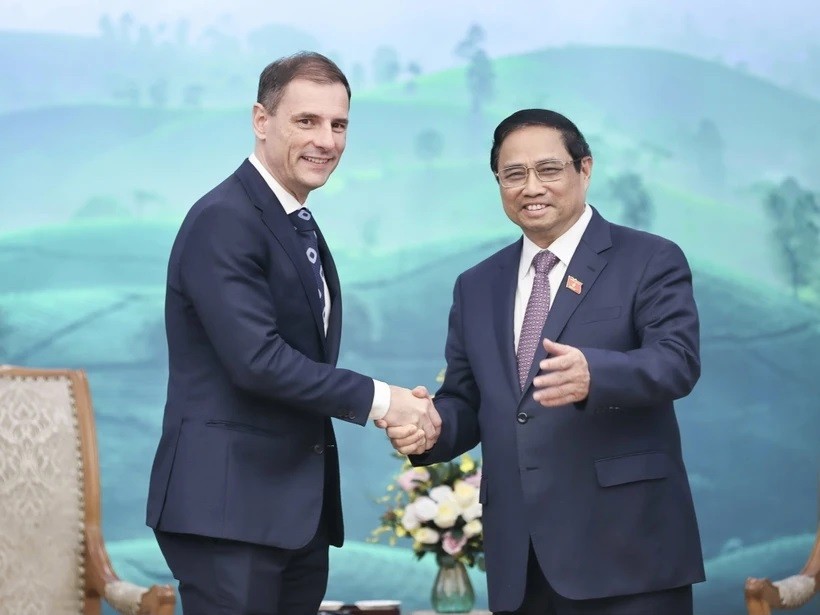
Vietnam and Hungary set up their diplomatic ties on February 3, 1950. Since then, the two nations have stood side by side with and supported each other during the wartime, and in the current national building cause. Bilateral friendship and cooperation have developed well in various fields such as education and training, legal and judicial affairs, culture, sports, and people-to-people exchanges.
In recent years, their political relationship has been tightened on the basis of mutual trust and understanding, with all-level and high-level delegation exchanges held in all Party, Government, National Assembly and locality channels.
Vietnam and Hungary have also cooperated closely and effectively and supported each other at multilateral forums, especially at the United Nations and within the Asia-Europe Meeting (ASEM) framework. The Hungarian government supported Vietnam to become a non-permanent member of the UN Security Council for the 2020-2021 term, while Vietnam backed Hungary's entry into the United Nations Economic and Social Council (ECOSOS) for the 2011-2013 term. In addition, within the ASEM framework, Vietnam has supported Hungary’s initiative on the role of water resources in the regional sustainable development strategy, and is also ready to assist Hungary in strengthening cooperation with ASEAN and its member countries.
Hungary actively advocated the approval of the EU-Vietnam Free Trade Agreement (EVFTA) and was the first EU member state to ratify the EU-Vietnam Investment Protection Agreement (EVIPA).
Two-way trade reached US$850 million in 2023, and the two countries are striving to achieve an annual trade growth rate of 10%.
Vietnamese Ambassador to Hungary Nguyen Thi Bich Thao said that bilateral trade ties are not commensurate with available potential despite the growth. She suggested the two sides increase trade exchanges to exploit their strengths, and supplement each other.
Regarding investment, as of December 20, 2023, Hungary ranked 52nd out of 144 countries and territories investing in Vietnam with 21 projects totaling $72.26 million.
Hungary considers Vietnam a priority partner in its international development support policy. Labor is a potential area of cooperation between the two countries. Since 2018, more than 1,000 Vietnamese people have travelled to work at factories and companies in the European nation. According to head of the Vietnam Trade Office in Hungary Tran Ngoc Ha, Hungary is currently experiencing a labor shortage, while Vietnam has an abundant, industrious and skilled workforce. He affirmed that the Vietnamese side always accompanies, creates favorable conditions and supports businesses from the two sides to promote bilateral economic and trade relations.
PM Chinh’s official visit, made at an invitation of his counterpart Viktor Orban, has been the first delegation exchange at the prime ministerial level between the two countries over the past seven years.
In the context of Hungary assuming the rotating President of the EU in the last 6 months of 2024, this trip is also expected to be an opportunity for Vietnam to strengthen coordination with the EU on regional and global issues, and speed up the ratification of the EVIPA.
























